No.247
Autumn arrives to us, the trees let go of themselves, and we all wonder how this could have happened again so soon.
This morning, remarkable because a small robin was trapped in the neighbour’s communal stairway, its fragile body crashing repeatedly at a cold, single-glazed window halfway up to their door. I catch it, offering gentle sounds and slow movements that try to convey I’m not going to harm it further, before I walk, robin-in-hand, the fifty metres or so back to my garden because I do not wish it to be found by the neighbour’s cats.
A wriggling robin still between my fingers I open the front door with my non-bird hand and call up echoing stairs to you, asking you to come down—it is 7:30am, gloomy—because I have a bird in my hands and I need another witness—I have already been witnessed by the rooks which line rooftops at this time of day.
You ask can I touch it and though you are not supposed to touch wild things if at all possible you are a largely gentle person and so I say yes and you stroke the robin’s head with one fingertip a few times and say I have never touched a robin before and then I turn towards the garden and open my hand—it flies across to the Japanese maple, we lose sight of each other.
And another thing: I accidentally included a small autumn-red silver birch leaf in the laundry the other day, on the ‘Easy Care’ cycle at 40 degrees, and it survived whole and unbothered from those 47 minutes and so I just put it back outside.
ROOT CATALOG COLUMN ON 木漏れ日:
Read in full my column from the current issue of Orion on their website, though also in part here below:
I’ve been thinking about komorebi for more than ten years. Once you know a word for something, there will flourish the potential for it to stick to your person, and it will stay on you like a seed burr at summer’s end or a speck of dirt others may hesitate to point out, though they very much desire to. Though, looking at a person, it is impossible to say with any certainty if they are thinking about sunlight filtering through leaves, or not.
Watching the Japanese maple closely in the garden this year (the first time I have been able to observe a Japanese maple day-to-day) its leaves appeared like ships stretched out on strings inside bottles, or like those strands of flags whisked out from a magician’s sleeves. A cold branched silence for months on end, then leaves pulled out by the sun in the manner of bottled ships, in only a week growing larger than hands and a deep purple-red. It all felt highly improbable.

SEND A POSTCARD:
For the cost of a stamp, purchase a postcard to someone or somewhere demanding sanctions, an end to arms sales, recognition of war crimes, an end to occupation and the brutal, indiscriminate massacre of Palestinians on their ancestral and native lands. There is an added option of including a recipient and a note, which I will then personally transcribe before sending:
THIS WEEK I FELL IN LOVE WITH:
Other paintings by Miranda Hine (also in No.244), particularly these swooshy Australian landscapes which also look very much like the colours of Scotland in its current state of autumn.
“I don’t think anybody ever knows what another person means when they speak, frankly. It’s more than translation, it’s just throwing yourself into the dark. Language is so very, very personal, private. Weird. I guess you could think of it as translation, that seems like a kind of euphemistic metaphor. It’s probably a lot more hopeless than that. But the effort of speaking as a human is the effort to get past that hopelessness with every sentence.”
— Anne Carson, in an interview with The Paris Review
Again and for however long necessary, for a Free Palestine: (Actions for demanding a ceasefire in Palestine.) / (Report Palestinian censorship in publishing.) / (Reading list for a Free Palestine.) / (Print and send postcards to demand freedom for Palestine and an end to arms sales.)
Paid supporters of The Sometimes Newsletter usually receive one or two additional posts each month, including things like short stories, illustrated essays, and a more detailed peering into creative processes. The most recent of these is Somewhere in Southern Europe:
Somewhere in Southern Europe
Somewhere in Southern Europe the pink is more pink, and a man weeds his garden rows in hot sun while wearing no shirt, but still socks. Somewhere in Southern Europe, in the heat of iron-rich red soil, there are old dogs tied up outside, flea-ridden and watching chickens, watching goats, dreaming of unchained melodies.




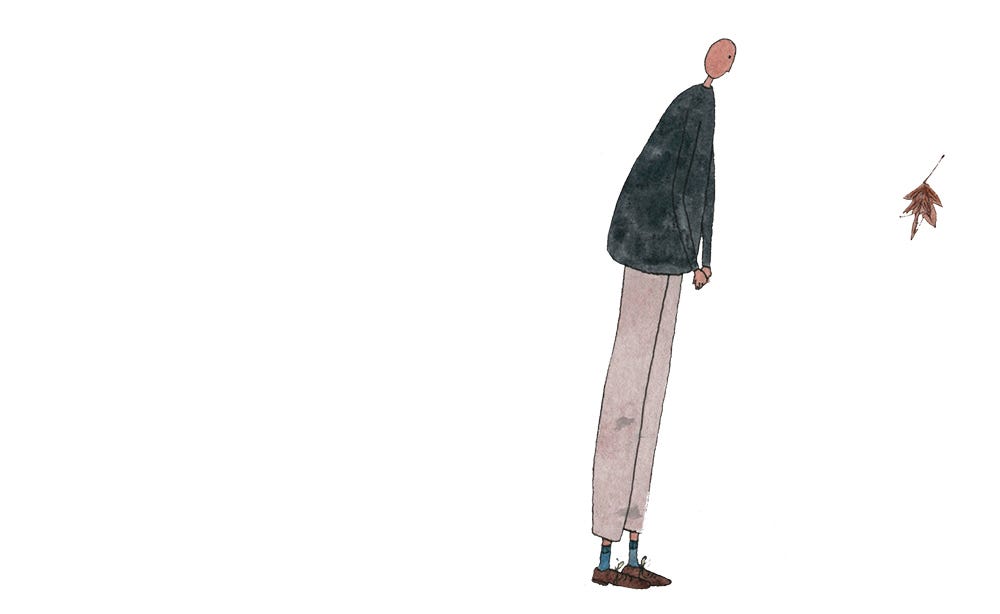
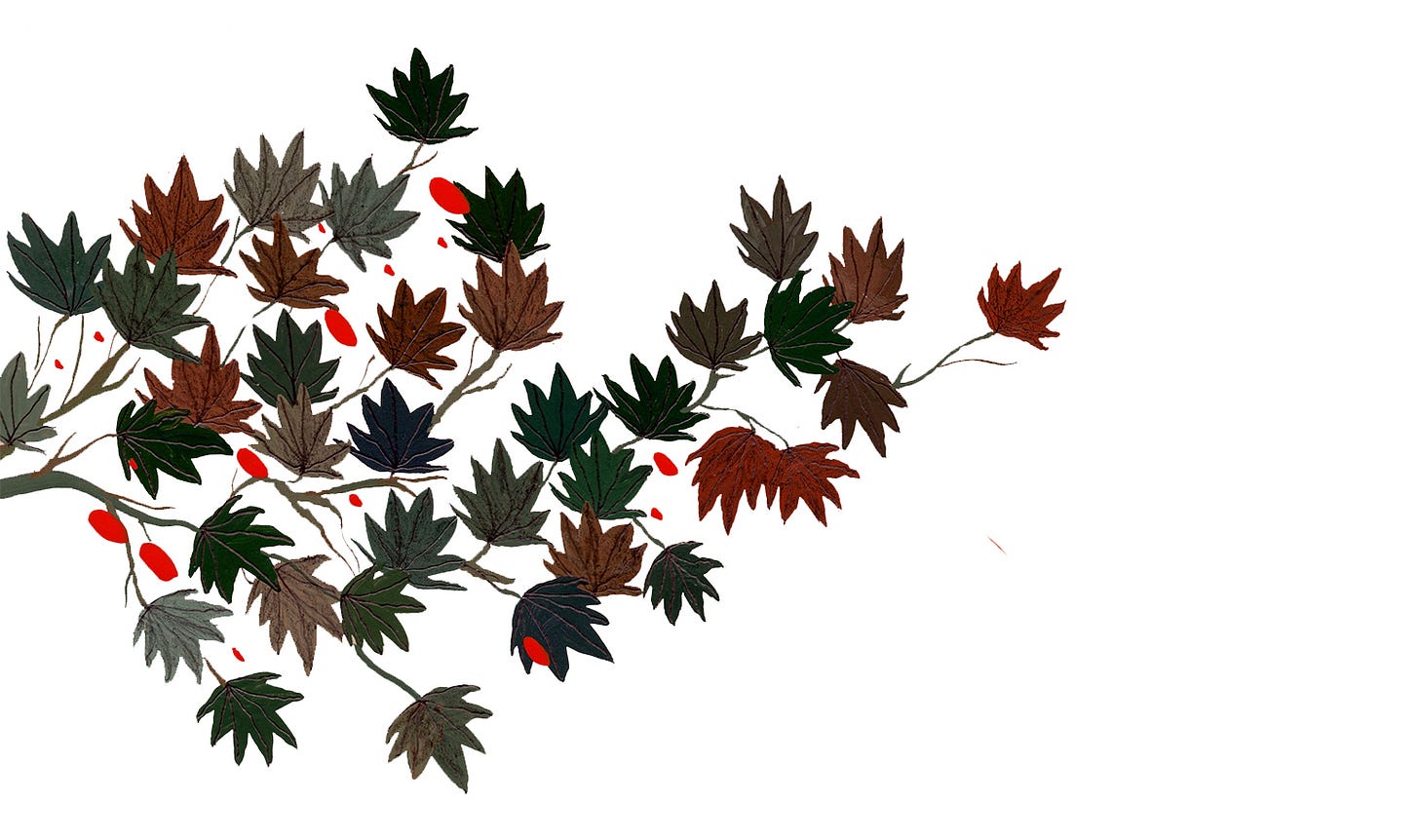

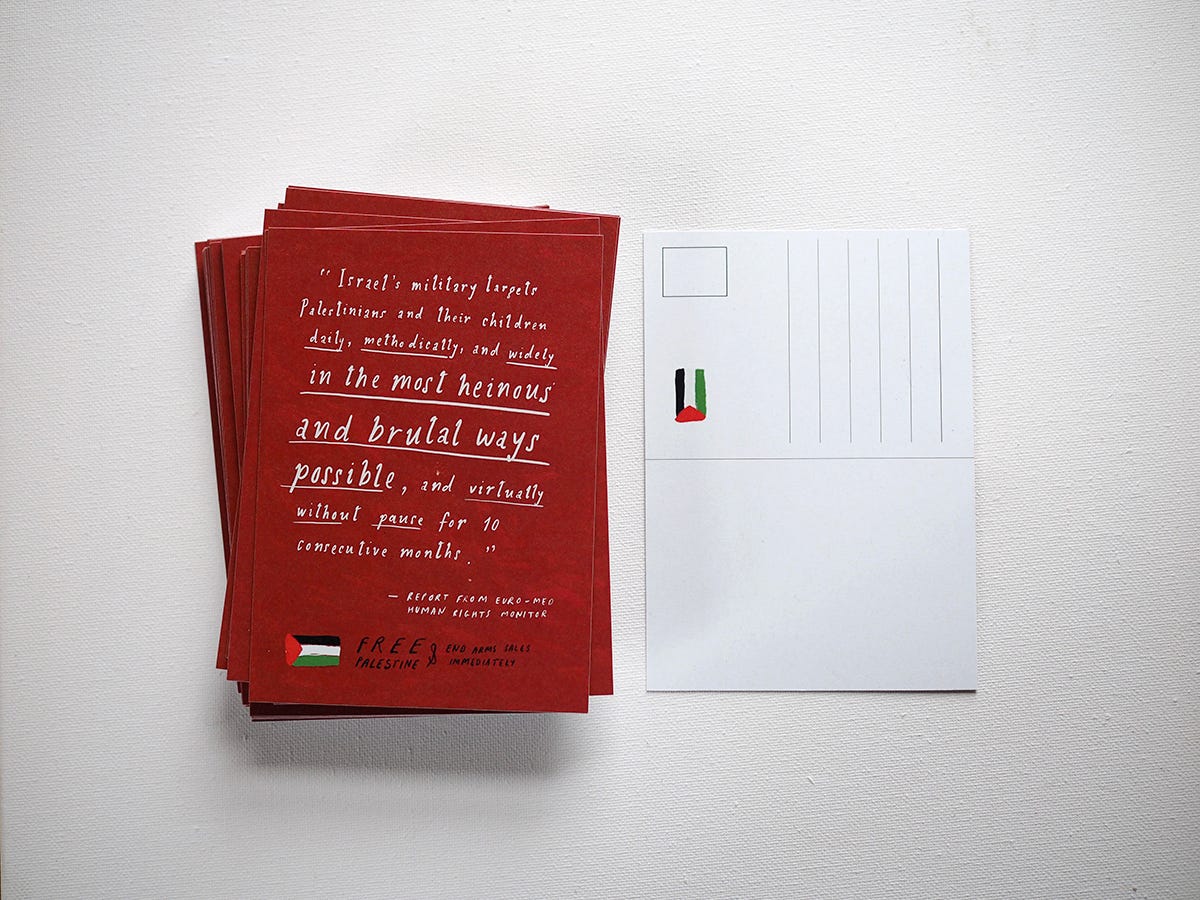

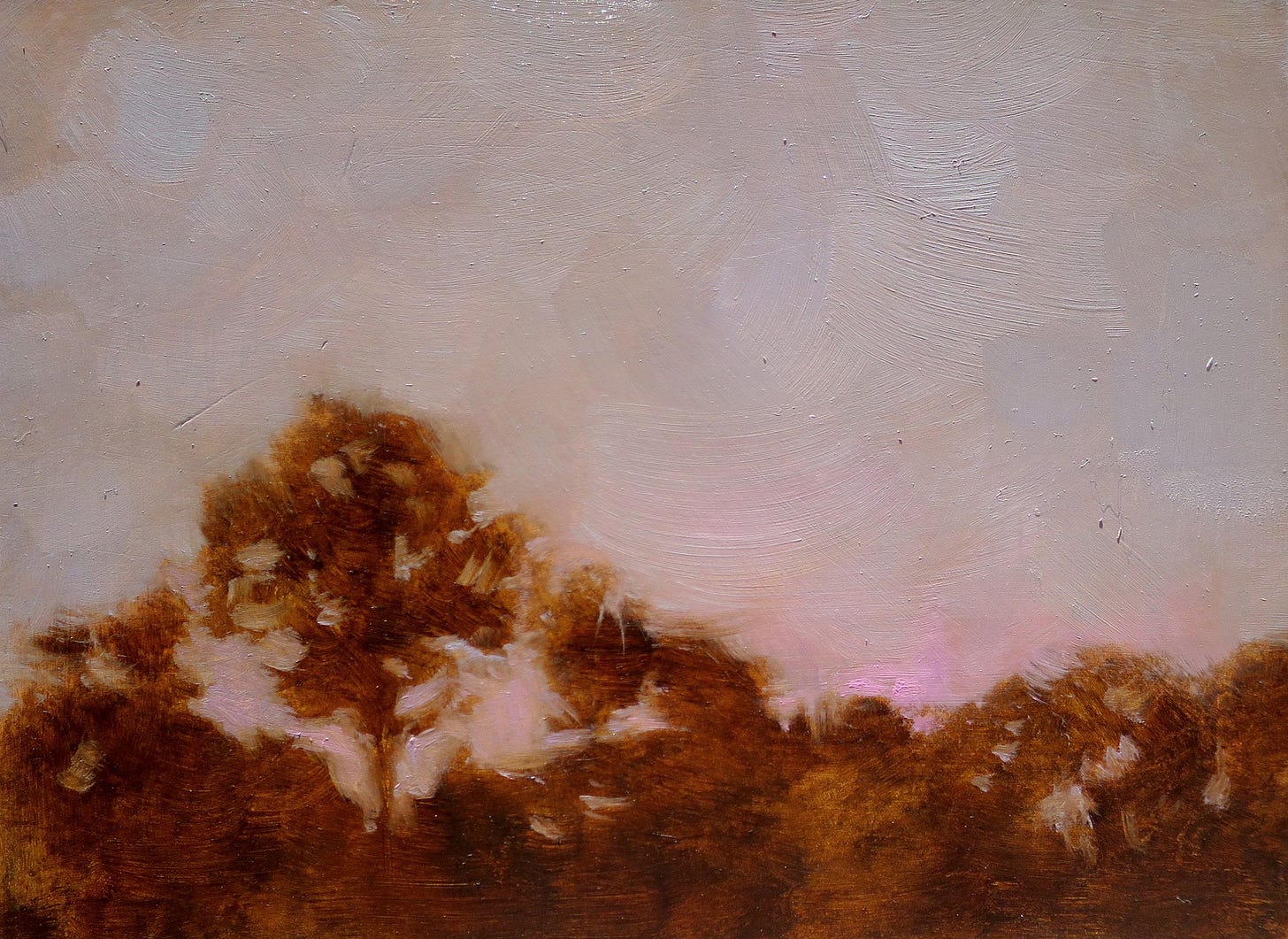
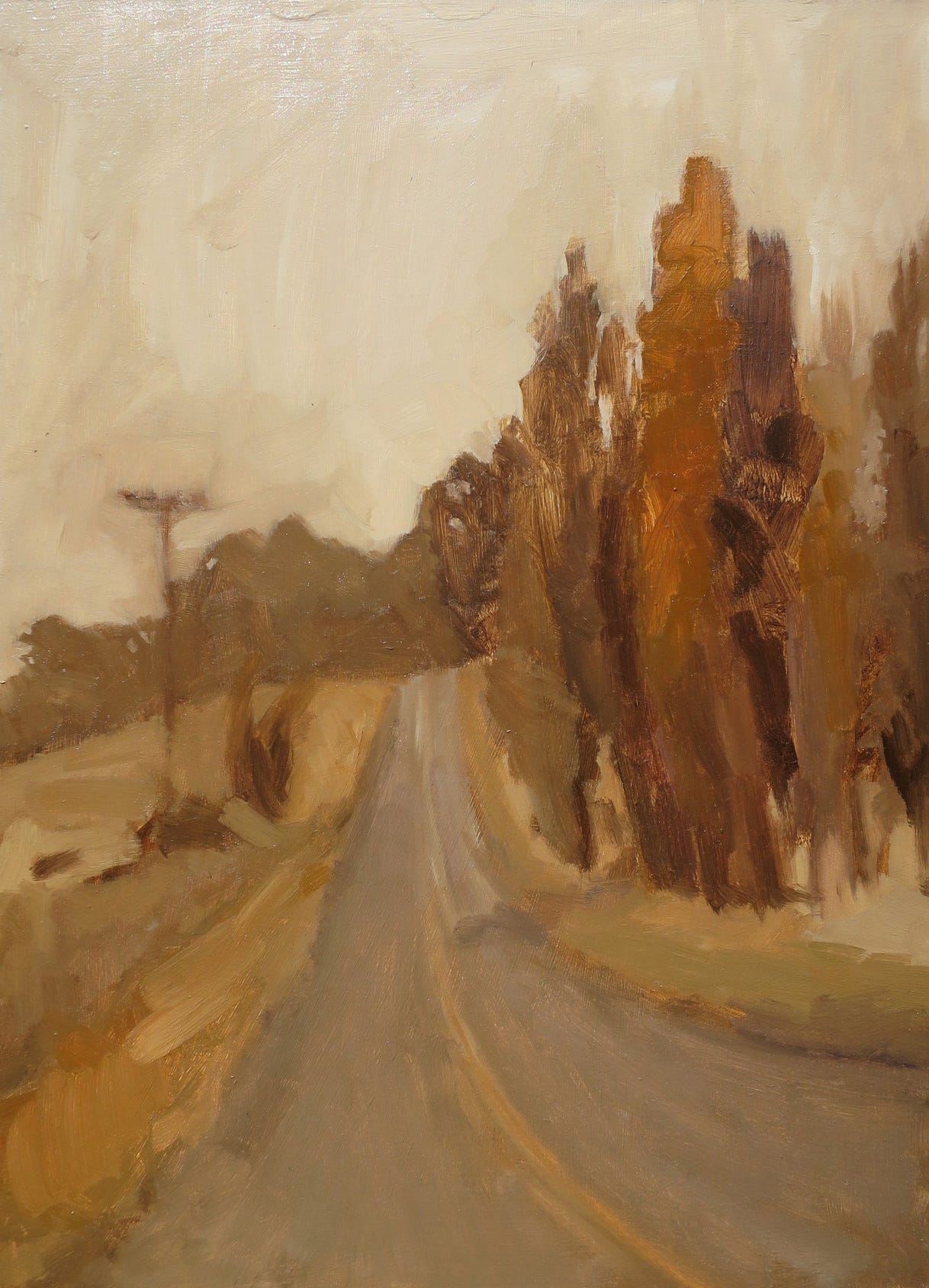
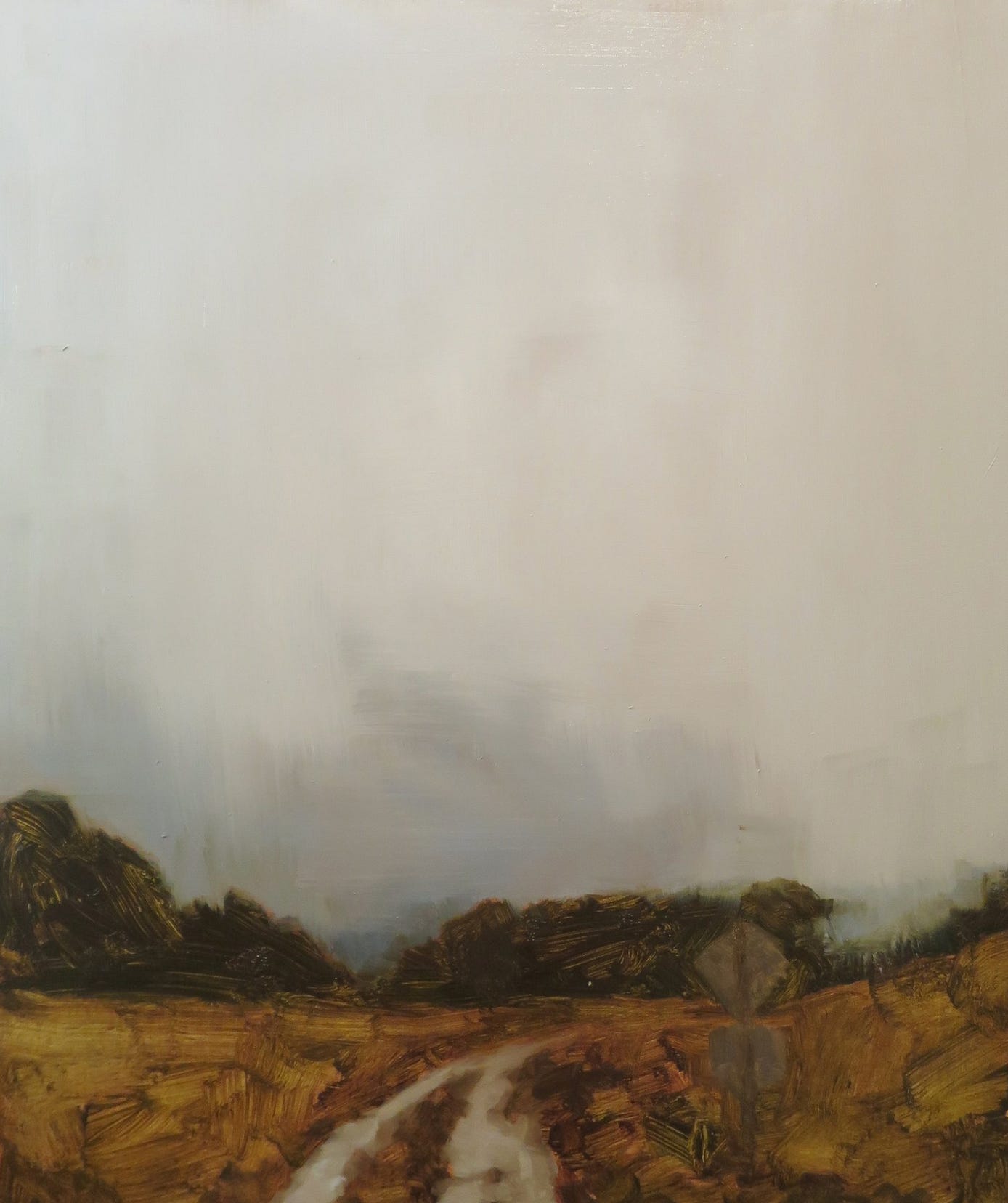
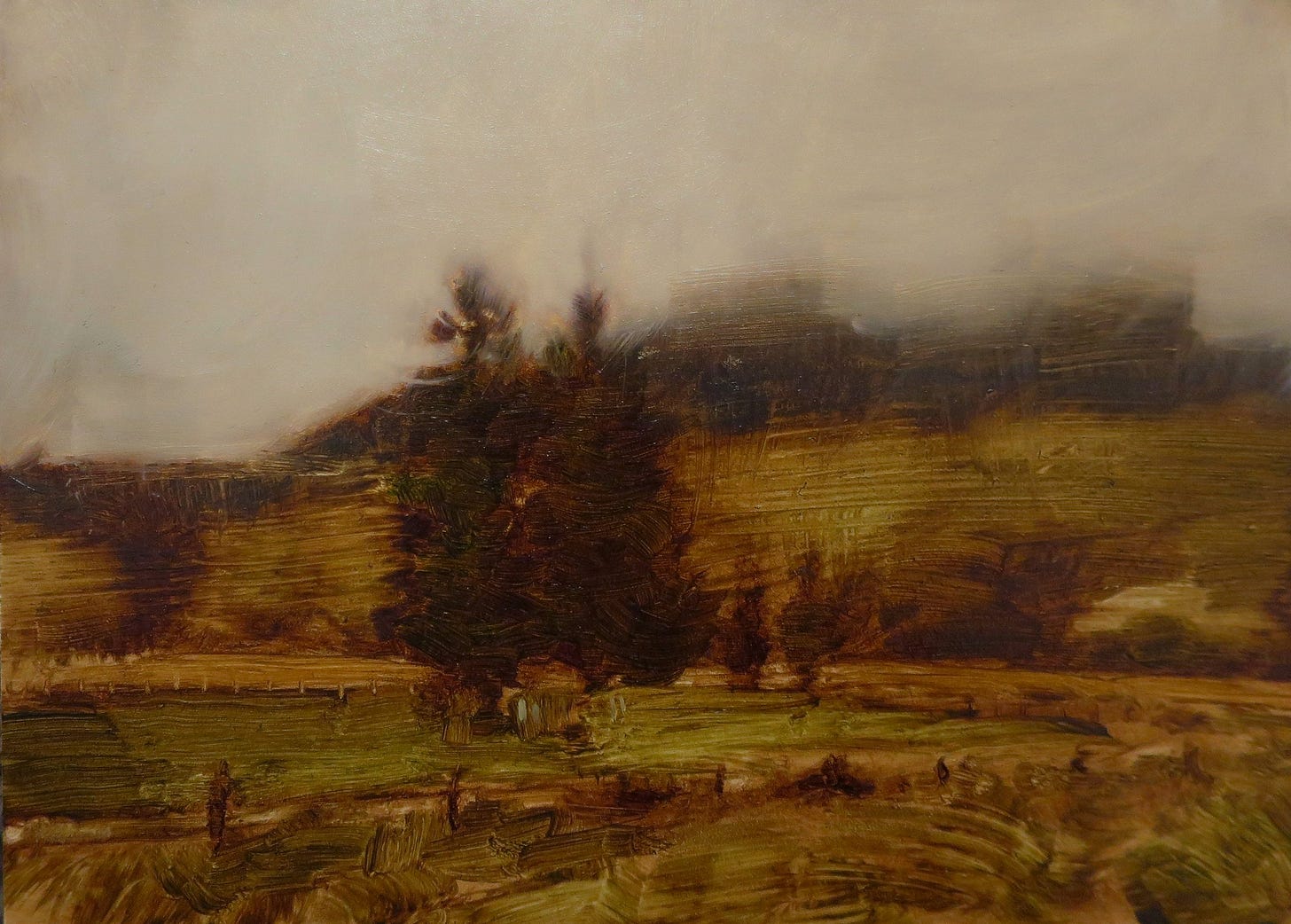
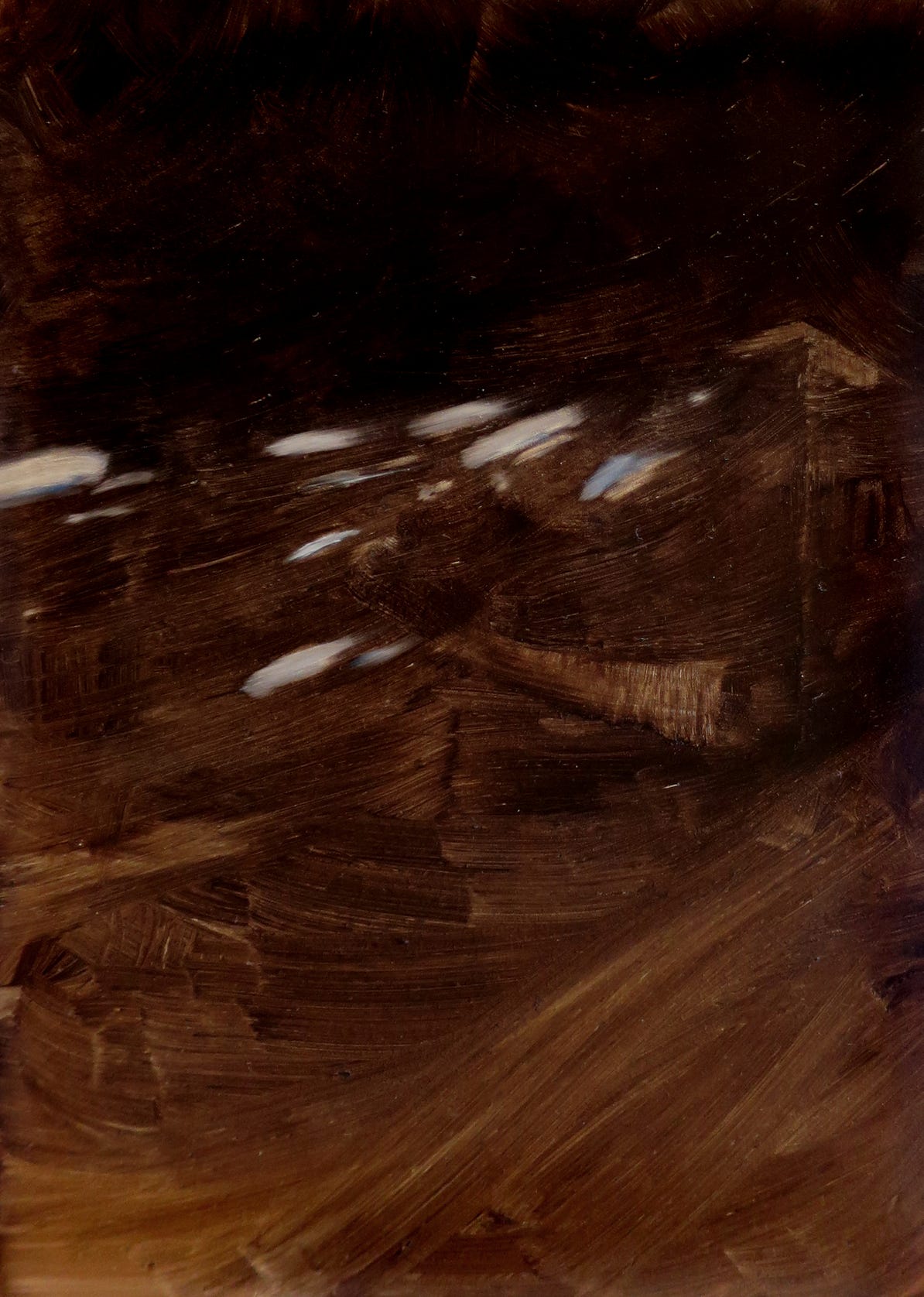
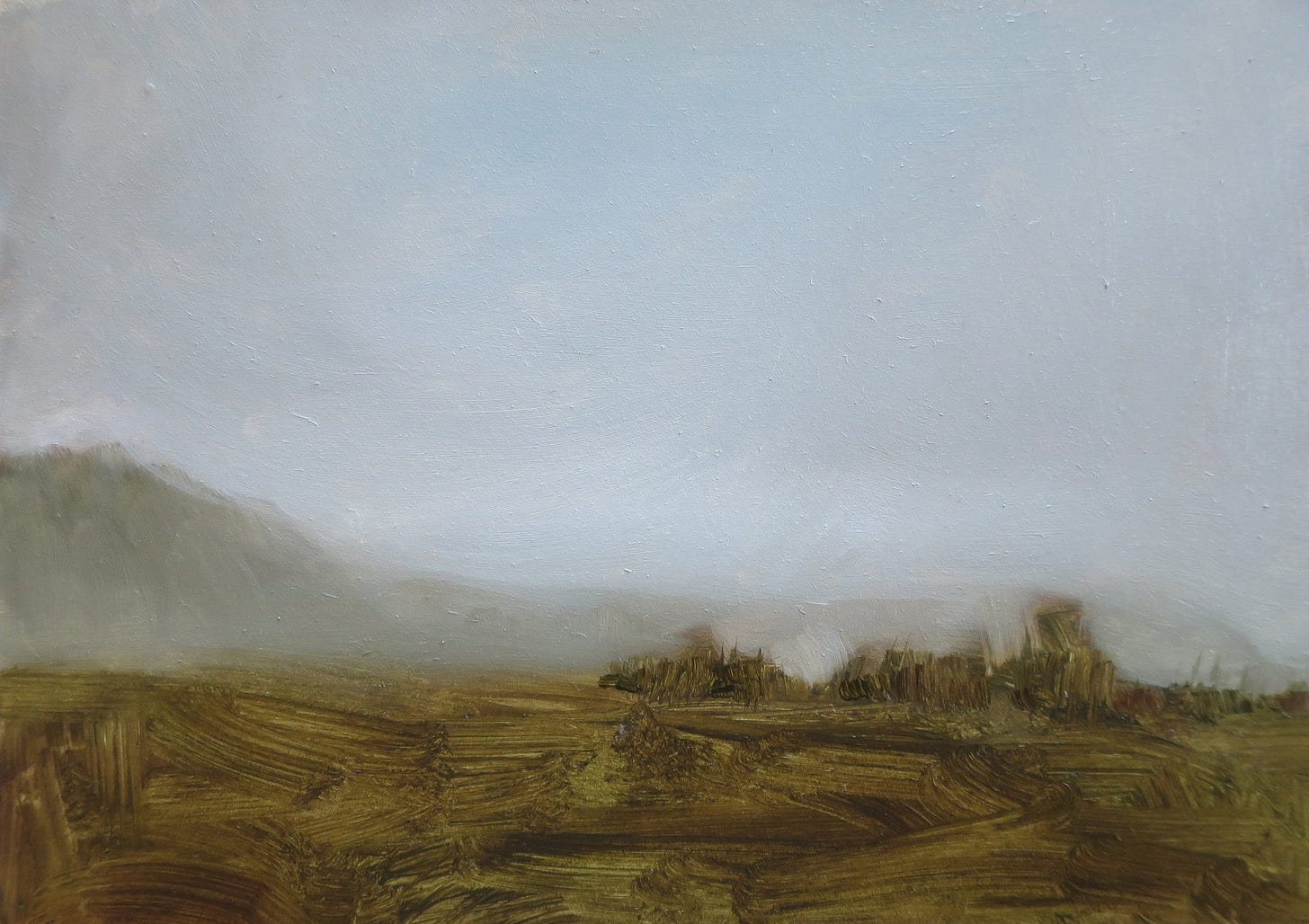


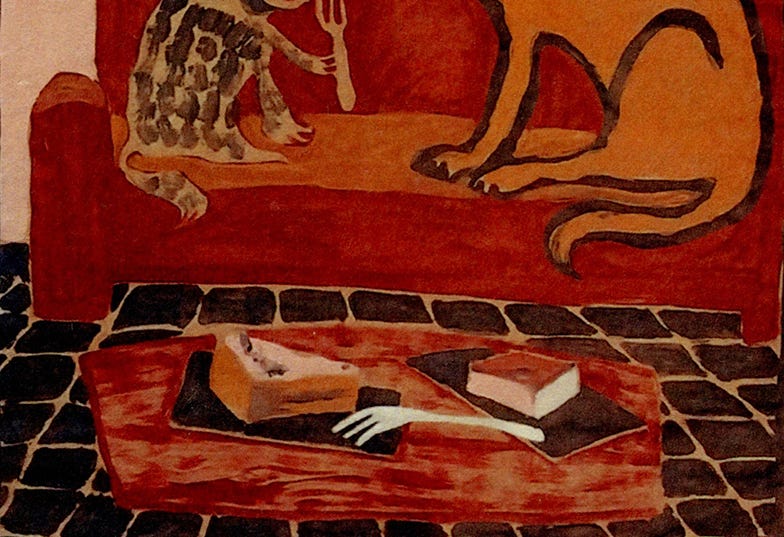
Thank you for your words and for the postcards. I just ordered a few.